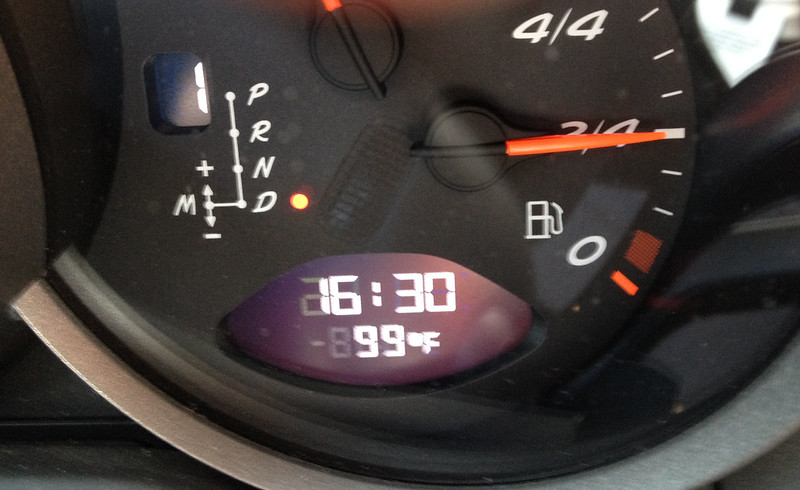Take it easy to stay safe in summer heat
By KD Reep
For U of A System Division of Agriculture
Fast Facts:
-
- Prevention is the best way to avoid heat-related illness
- Seek immediate medical attention if you experience the symptoms of heat-related illness
(564 words)
LITTLE ROCK, Ark. – The heat and humidity have arrived in Arkansas, and they are brutal, with temperatures in the 90s and heat indices in the triple digits.
For Arkansans, it’s crucial to learn and follow safety guidelines to avoid heat stroke and heat-related illness, especially with highs expected in the 90s through the rest of this week.
“The best way to avoid getting sick from the heat is to prevent it,” Lisa Washburn, assistant professor-health for the University of Arkansas System Division of Agriculture, said on Tuesday. “When the heat index is 90 degrees or more, you need to take a few extra precautions to keep you, your family, friends and co-workers safe.”
The heat index is a measure of how hot weather feels to the body. It uses relative humidity and air temperature to produce the index, and the values are for shady locations only. Before going out doors for the day, check the heat index first.
“You should always stay sufficiently hydrated, but when the heat index is high, it is vital to drink lots of water as it’s easier to become dehydrated in temperatures 90 degrees and higher,” Washburn said. “A good rule of thumb is to drink a quart of fluids an hour if you are outside on high heat index days. Caffeinated drinks and alcohol will sap your hydration, too, so avoid those beverages or drink an equal amount of water to what you consume in caffeine and alcohol.”
If you are outdoors because of work, take frequent breaks either inside or in the shade to cool off. “Don’t overexert yourself,” Washburn said. “Wear loose clothing that is light in color and fabric, slather on sunblock often and put on a hat. Really, if you can stay inside as much as possible, it will keep you safe from heat-related illness.”
While inside, be sure to use air conditioning and fans to maintain a cool temperature. If you don’t have access to either, open windows and use fans to keep air moving throughout your space or go to a public place that has air conditioning, like a mall, library, movie theater or cooling center.
“It’s especially important to check on people who are elderly and chronically ill during high heat days,” Washburn said.
The warning signs of heat exhaustion are pale skin, fatigue, weakness, dizziness or nausea, profuse sweating, rapid pulse, fast and shallow breathing, and muscle weakness and cramps. If you or someone near you have any of these symptoms, get out of the heat and rest in a cool, shady place. Drink plenty of water or other fluids containing electrolytes, but do not drink alcohol as it will make the illness worse. If after 30 minutes you or the person experiencing these symptoms does not feel better, contact a doctor or 911. If not treated, heat exhaustion can lead to heat stroke, which can cause death.
The warning signs of heat stroke include skin that feels hot and dry, but not sweaty; confusion or loss of consciousness; throbbing headache; frequent vomiting and shortness of breath or trouble breathing. If you or someone near you has any of these symptoms, call 911 immediately. Once emergency help is on the way, move the person to a cooler location, remove heavy clothing and cool the body by wetting it thoroughly and fanning it, and get the person to drink cool fluids if they can. Once at the hospital, the patient probably will be given fluids intravenously.
For more information about staying healthy this summer and how to recognize, avoid and treat heat-related illness, visit extension's Web site, www.uaex.uada.edu, or contact your county extension agent.
The Arkansas Cooperative Extension Service is an equal opportunity institution. If you require a reasonable accommodation to participate or need materials in another format, please contact your County Extension office (or other appropriate office) as soon as possible. Dial 711 for Arkansas Relay.
Pursuant to 7 CFR § 15.3, the University of Arkansas System Division of Agriculture offers all its Extension and Research programs and services (including employment) without regard to race, color, sex, national origin, religion, age, disability, marital or veteran status, genetic information, sexual preference, pregnancy or any other legally protected status, and is an equal opportunity institution.
# # #
Media Contact: Mary Hightower
Dir. of Communication Services
U of A Division of Agriculture
Cooperative Extension Service
(501) 671-2126
mhightower@uada.edu
Related Links
